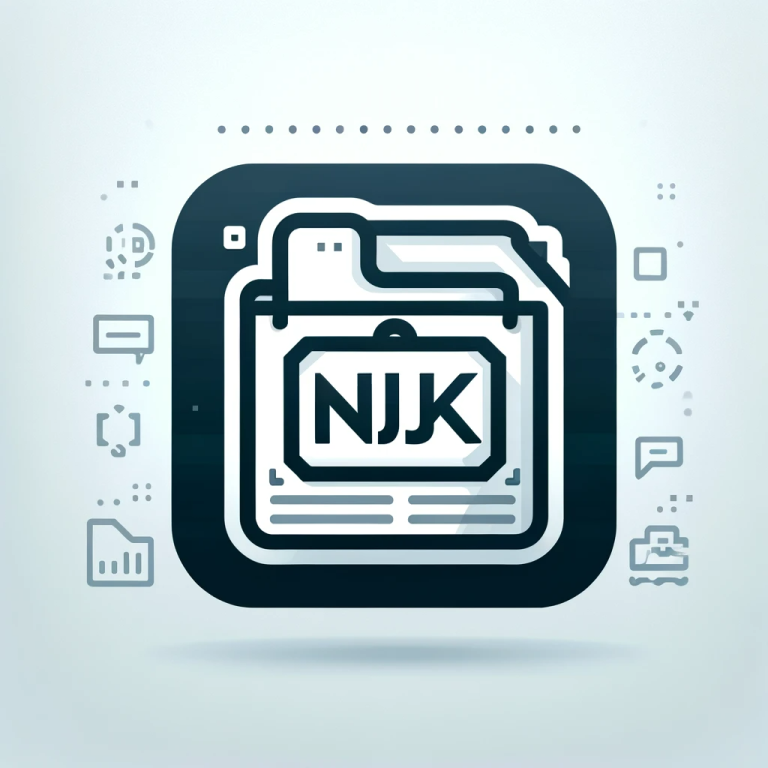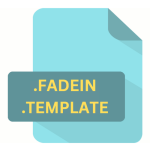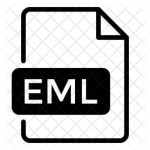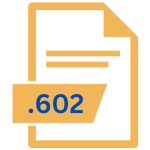.NJK File Extension

Nunjucks Template
| Developer | Mozilla |
| Popularity | |
| Category | Text Files |
| Format | .NJK |
| Cross Platform | Update Soon |
What is an NJK file?
File extensions are vital components of modern computing, as they define the format and type of a given file. Among the myriad of file extensions available, the .NJK file extension is an interesting one, primarily associated with Nunjucks templates.
Nunjucks is a popular JavaScript templating engine that allows developers to create dynamic web pages easily. The .NJK file extension, therefore, signifies a file that contains code written in Nunjucks syntax.
More Information.
The initial purpose of Nunjucks was to simplify the process of generating dynamic HTML content on web pages.
It was developed to provide a robust and flexible template system that could be used with JavaScript to separate logic from presentation.
This separation of concerns is a fundamental concept in modern web development and is crucial for maintaining clean and maintainable code.
Origin Of This File.
The .NJK file extension originated from the Nunjucks templating engine, which was created by Mozilla for use in their web development projects.
It was first introduced in 2012 and has since gained widespread adoption in the web development community.
File Structure Technical Specification.
.NJK (Nunjucks Template) files are plain text documents used with the Nunjucks templating engine for web development.
They follow a specific syntax, featuring variables, control structures, template inheritance, filters, and comments.
These files are compatible with various web development stacks and can control whitespace. Nunjucks templates are extensible, offer error handling, and require security measures to protect against vulnerabilities. Proper optimization ensures efficient rendering.
Familiarity with .NJK file structure and technical specifications empower developers to create dynamic web content while maintaining code clarity and performance.
How to Convert the File?
Converting .NJK (Nunjucks Template) files can be done using the Nunjucks templating engine or related tools. Here’s a simplified step-by-step guide on how to convert .NJK files:
- Preparation: Ensure you have Node.js and npm installed on your computer to utilize Nunjucks for conversion.
- Project Organization: Create a dedicated project folder to neatly arrange your .NJK files and associated assets.
- Installation: Install the Nunjucks templating engine using npm, either globally or locally within your project, for effective file conversion.
- Script Creation: Craft a JavaScript script (e.g., render.js) that configures Nunjucks for rendering .NJK files. This script should include essential steps.
- Module Import: Import the Nunjucks module to enable its functionality in your script.
- Configuration: Configure Nunjucks to pinpoint the folder where your .NJK files reside. This is a crucial setup step.
- Rendering Process: Employ Nunjucks to render a specific .NJK file of your choice within your script. The rendering process transforms the template into the desired output.
- Output Capture: Capture the rendered content and determine how you wish to utilize it. This might involve saving it to a file, such as HTML, or integrating it into your web application.
- Execution: Run your Nunjucks rendering script using Node.js. This step executes the conversion process, resulting in the transformation of .NJK files according to your specifications.
Advantages And Disadvantages.
Advantage:
- Clean Separation of Concerns: Nunjucks templates promote a clear separation between the presentation layer (HTML) and the logic layer (JavaScript), making code easier to understand and maintain.
- Reusability: The ability to include and extend templates allows for code reuse, reducing duplication and improving consistency.
- Dynamic Content: Nunjucks templates are excellent for rendering dynamic content based on data or user interactions.
- Community Support: Being an open-source project, Nunjucks has an active community, ensuring ongoing support, updates, and a rich ecosystem of extensions.
Disadvantage:
- Learning Curve: For beginners, Nunjucks’ templating syntax can be challenging to grasp initially.
- Limited Use Case: .NJK files are primarily used in web development, so their application is limited to web-related projects.
- Performance: While Nunjucks is generally fast, excessive template complexity can lead to performance issues.
How to Open NJK?
Open In Windows
- Use a text editor like Notepad, Visual Studio Code, or Sublime Text to open and edit .NJK files.
- Install Node.js and Nunjucks to process .NJK files and view the rendered output in a web browser.
Open In Linux
- Linux users can use text editors like Gedit, Nano, or Visual Studio Code to open and edit .NJK files.
- Install Node.js and Nunjucks to process .NJK files and view the rendered output in a web browser, just like in Windows.
Open In MAC
- macOS users can use text editors like TextEdit, Visual Studio Code, or Sublime Text to open and edit .NJK files.
- Install Node.js and Nunjucks to process .NJK files and view the rendered output in a web browser, similar to Windows and Linux.
Open In Android
- On Android devices, you can use text editor apps like QuickEdit Text Editor or Dcoder, which support code editing for various file types.
- To process .NJK files and view the rendered output, you may need to install a Node.js and Nunjucks environment using termux or similar tools.
Open In IOS
- iOS users can use text editor apps like Textastic Code Editor or Buffer Editor to open and edit .NJK files.
- To process .NJK files and view the rendered output, consider using a web development app that supports Node.js and Nunjucks, if available.
Open in Others
- You can open .NJK files on any platform using cross-platform text editors like Visual Studio Code, which is available for Windows, Linux, macOS, Android, and iOS.
- For rendering .NJK files, you would still need to set up Node.js and Nunjucks on the respective platform.













